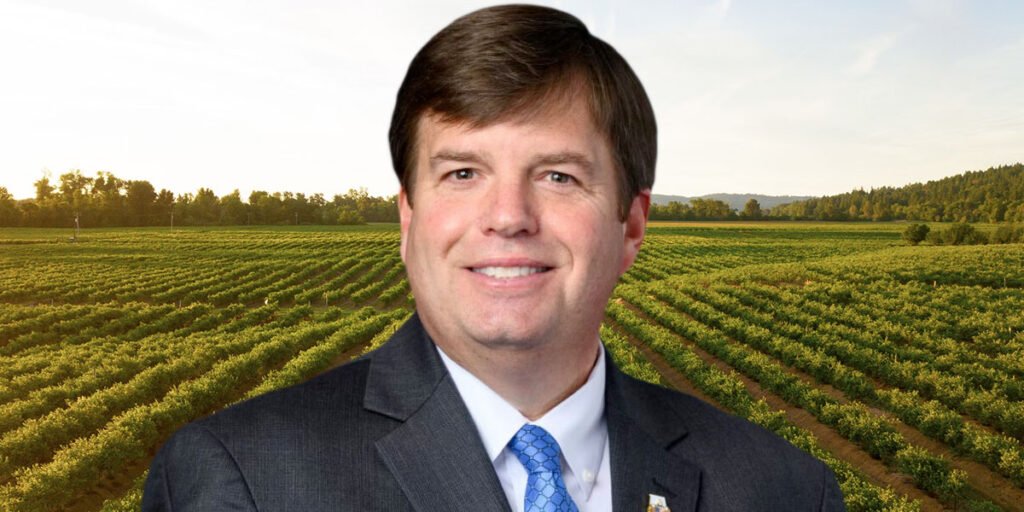Concerns Over Foreign Ownership of US Farmland
US Representative Dale Strong from Huntsville is actively advocating for his legislation that seeks to limit excessive Chinese ownership of farmland in the United States.
Earlier this year, lawmakers reintroduced initiatives designed to protect American farmland from foreign interference. Senator Tommy Tuberville has proposed a similar bill in the Senate.
Recently, Strong discussed this pressing issue on the Joe Pugs Show.
“Currently, China owns or leases over 380,000 acres here,” Strong stated. “That’s a significant concern for national security.”
In a recent tweet, Strong highlighted the situation, indicating that this land is crucial for American interests, asserting, “That wealth should reside with American farmers who can cultivate it for our own population.”
A January 2024 report from the GAO indicates that foreign investments in US farmland are on the rise. As of 2021, it was reported that over 40 million acres are owned by foreign entities, with about 340,000 of those acres under Chinese ownership.
Strong further mentioned various stakeholders involved in addressing this challenge, stating, “Kristi Noem is engaged, the Ministry of Agriculture is focused, and Pam Bondi is on top of it.” He emphasized the proximity of these lands to major military facilities and reiterated, “This is indeed a threat to American national security. I believe we’re finally on the path to addressing it.”
Furthermore, Tuberville, along with senior officials from the Trump administration, recently announced a new initiative aimed at safeguarding domestic farmland and food supplies from foreign adversaries.
Strong expressed that his bill aims to return numerous foreign-held properties to American control.
“I refer to this as repatriation of property,” he clarified. “That wealth rightly belongs to America. Our farmers should manage it and produce for local needs.”
The proposed “Protecting American Farmland from Foreign Harm” legislation would prevent individuals linked to foreign enemy states from engaging in specific US Department of Agriculture programs. Notably, these restrictions would not impact US citizens or legal residents.















